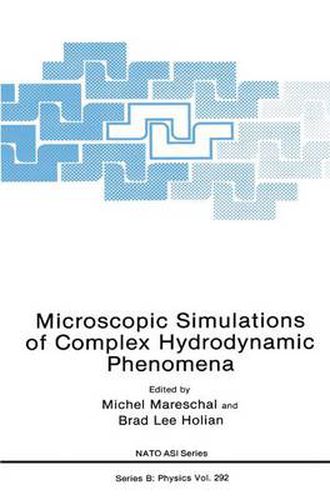Readings Newsletter
Become a Readings Member to make your shopping experience even easier.
Sign in or sign up for free!
You’re not far away from qualifying for FREE standard shipping within Australia
You’ve qualified for FREE standard shipping within Australia
The cart is loading…






This title is printed to order. This book may have been self-published. If so, we cannot guarantee the quality of the content. In the main most books will have gone through the editing process however some may not. We therefore suggest that you be aware of this before ordering this book. If in doubt check either the author or publisher’s details as we are unable to accept any returns unless they are faulty. Please contact us if you have any questions.
This volume contains the proceedings of a NATO Advanced Study Institute which was held in Alghero, Sardinia, in July 1991. The development of computers in the recent years has lead to the emergence of unconventional ideas aiming at solving old problems. Among these, the possibility of computing directly fluid flows from the trajectories of constituent particles has been much exploited in the last few years: lattice gases cellular automata and more generally Molecular Dynamics have been used to reproduce and study complex flows. Whether or not these methods may someday compete with more traditional approaches is a question which cannot be answered at the present time: it will depend on the new computer architectures as well as on the possibility to develop very simple models to reproduce the most complex phenomena taking place in the approach of fully developed turbulence or plastic flows. In any event, these molecular methods are already used, and sometimes in an applied engineering context, to study strong shock waves, chemistry induced shocks or motion of dislocations in plastic flows, that is in domains where a fully continuum description appears insufficient. The main topic of our Institute was the molecular simulations of fluid flows. The project to hold this Institute was made three years ago, in the summer of 1989 during a NATO workshop in Brussels on the same subject.
$9.00 standard shipping within Australia
FREE standard shipping within Australia for orders over $100.00
Express & International shipping calculated at checkout
This title is printed to order. This book may have been self-published. If so, we cannot guarantee the quality of the content. In the main most books will have gone through the editing process however some may not. We therefore suggest that you be aware of this before ordering this book. If in doubt check either the author or publisher’s details as we are unable to accept any returns unless they are faulty. Please contact us if you have any questions.
This volume contains the proceedings of a NATO Advanced Study Institute which was held in Alghero, Sardinia, in July 1991. The development of computers in the recent years has lead to the emergence of unconventional ideas aiming at solving old problems. Among these, the possibility of computing directly fluid flows from the trajectories of constituent particles has been much exploited in the last few years: lattice gases cellular automata and more generally Molecular Dynamics have been used to reproduce and study complex flows. Whether or not these methods may someday compete with more traditional approaches is a question which cannot be answered at the present time: it will depend on the new computer architectures as well as on the possibility to develop very simple models to reproduce the most complex phenomena taking place in the approach of fully developed turbulence or plastic flows. In any event, these molecular methods are already used, and sometimes in an applied engineering context, to study strong shock waves, chemistry induced shocks or motion of dislocations in plastic flows, that is in domains where a fully continuum description appears insufficient. The main topic of our Institute was the molecular simulations of fluid flows. The project to hold this Institute was made three years ago, in the summer of 1989 during a NATO workshop in Brussels on the same subject.